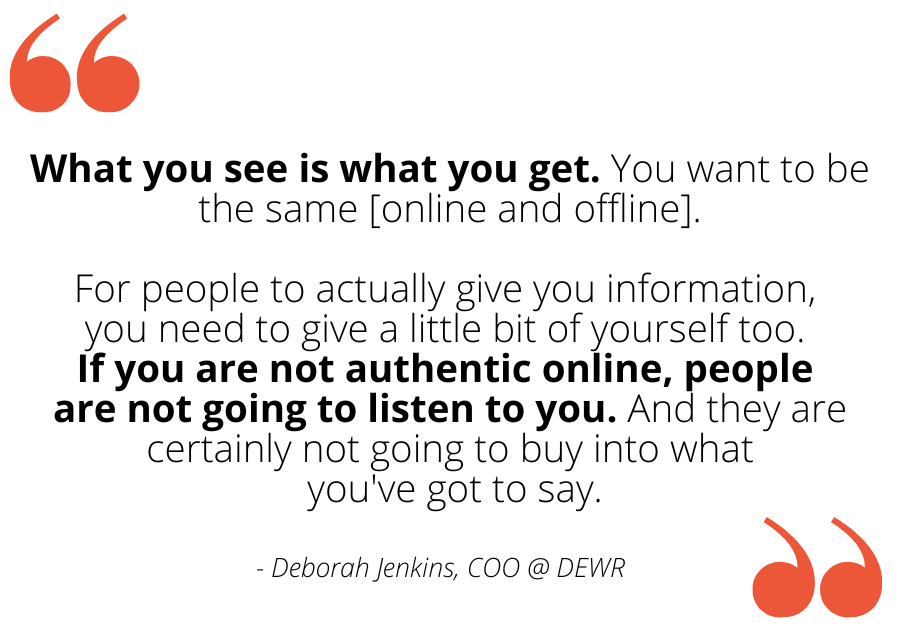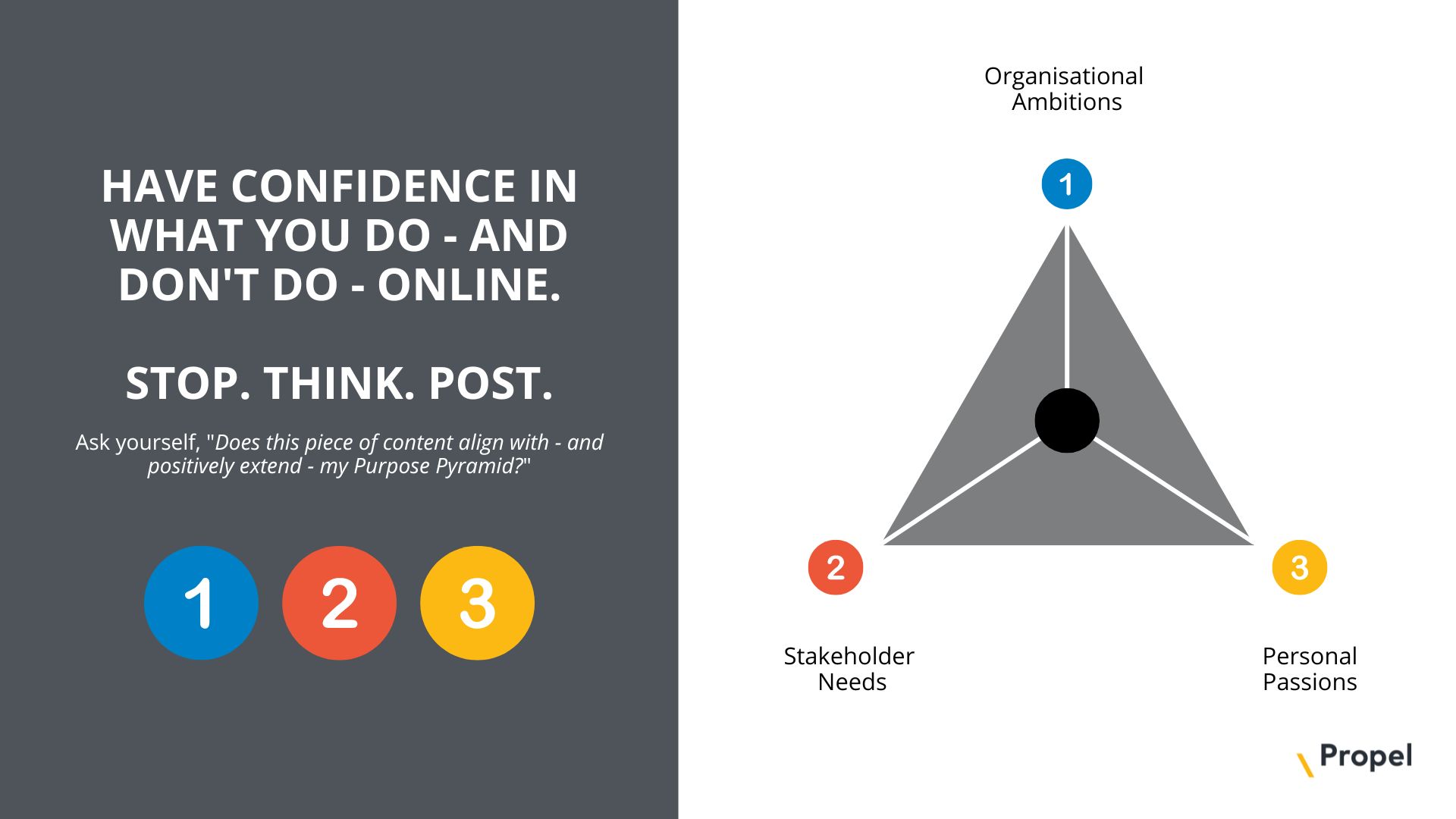
The sole purpose of this newsletter is to help you and your leaders save time and effort on social media, and to ensure any actions your leaders take online limit risk to your organisation’s reputation.
I wonder if you can relate to any of these scenarios:
When was the last time your leader was reluctant to post something on social media?
How many times have you been involved in conversations that start with: ‘Right, what do we need to post this week?’ and only end when you have filled your leader’s three content calendar slots?
How often has your leader been encouraged to tag the same 12 executive or internal colleagues so they can all jump in and support their post?
Each of these scenarios exposes your leader and organisation to greater reputational risk online. And I don’t want that – nor do you.
So, as your leader’s trusted counsel, I’m going to ask you to do something ‘controversial’ and throw out the old ‘social media rule book’.
You know the one.
I’m not talking about getting rid of the good stuff. I’m talking about rules that both limit performance of your leaders’ posts, and seem better suited to a brand playbook or the traditional media world.
You’ve seen it yourself (I certainly know I have…). Things like ideal post frequency, using corporate hashtags, and how to re-post media releases (among other things…).
Let’s park that rule book for now.
I’d like you to listen to what Deborah Jenkins, a senior public servant, has to say instead. She has a superb piece of advice for both leaders and their teams.

Meet Deb.
Deb’s a kiwi (but we won’t hold that against her…especially not around September/October 🏉).
Deb’s also the COO & Deputy Secretary at DEWR (the Australian Department of Employment and Workplace Relations).
And she’s a ‘card-carrying member’ of the executive social media club. 😉
We had a chat on the podcast recently where she shared her golden rule for posting, relevant to every single leader on social media:
“If I don’t feel it, I don’t post it.”
Nothing about frequency, nothing about formats, nothing about box ticking.
“If I don’t feel it, I don’t post it.”
It seems so simple. Yet this rule is incredibly powerful.
A leader’s ability to decide when to – or not to – post, when to – or not to – comment, when to – or not to – react has far reaching implications.
Like Telstra’s Kim Krogh Andersen in our last newsletter, Deb makes these decisions quickly and easily by having a clear purpose.
As a busy bureaucrat, she 100% relies on her team for digital reputation support. However at the end of the day, she understands that her voice and presence online must be her own.
Why? It’s a reflection of who she is as a leader.
In her case, Deb truly values her people. She wants to genuinely learn about them and to advocate for them.
She’s a wonderful example of an executive with a clear purpose for social media, someone people LOVE working with (just read some of the comments here) and someone we can learn plenty from.

Reflecting on Deb’s example, I hope you feel empowered to make this your reality too.
This is exactly where our Purpose Pyramid comes in.
I mentioned this in our last newsletter, and I’d strongly recommend encouraging your leaders to do this exercise for themselves.
It applies to both executives and company directors running the largest organisations in the country. It applies to leadership teams keen to get aligned. And the responses very much apply to comms and digital advisers seeking better results for their leaders online.
Have a go.

Carve 15-20 minutes in your leader’s day to help them answer these three questions:
- What are my organisational ambitions – what goals or objectives am I trying to achieve in my role?
- Which stakeholders matter most to me in that pursuit (and – critically – what matters to them)?
- What am I passionate about or what aspects of my leadership journey are unique to me?
That’s it.
No tricks. No quotas.
Just: purpose.
Clarity around your leaders’ purpose serves as a practical, valuable filter to know what they should talk about online. And importantly when to extract themselves and avoid a conversation altogether.
Again, it all comes down to purpose. Because when it’s not authentic, as Deb says, “It jars”.
Purpose is the new framework – a new rule book – for how your leaders can engage safely and successfully online.
And I’d genuinely love to hear about how you go encouraging your leaders to complete their own Purpose Pyramid. Or drop me a note and I will gladly explain how it works.
Until next time, take care.
Roge

Want more just like this delivered straight to your inbox? Subscribe below for all your latest digital reputation advice, trends and the best practice examples of the leaders getting it right online. We’d love to have you part of this growing community.